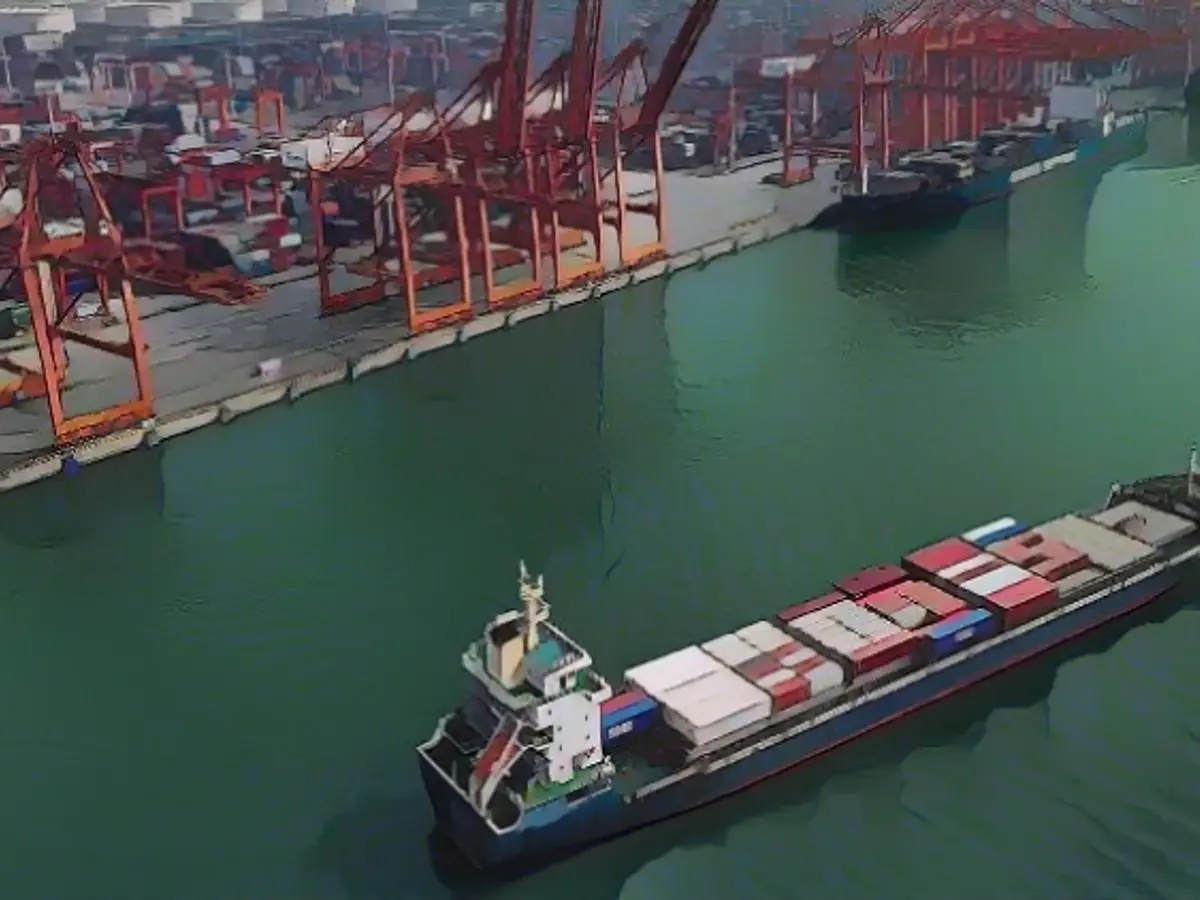Shocking Surge in Chinese Exports, Yet Challenge Lies Ahead
China's Export Surprise
Facing raised eyebrows and skepticism, China surprised analysts as its exports rose by an unexpected 0.5% in November compared to the same month last year. The increase, reported by China's customs authority, marked the first increase in exports since May and barely scratched the surface of the 6.4% drop experienced in October.
Imports and European Concerns
Simultaneously, imports took a surprising dip, falling by 0.6%. Analysts had expected a significant increase in imports following the October surge, which was attributed to growing consumption in China's domestic market. German exporters also felt the pinch as Chinese imports to the EU and Germany declined more than ten percent during the year.
These unsettling absences in Chinese import figures persistently concern European Council President, Charles Michel, and Commission President Ursula von der Leyen, as they engage in talks with China's government in Beijing regarding unbalanced trade relations.
The Rise in Chinese Exports to Russia
A notable exception to the disappointing trade trends in Germany is the rapid increase in Chinese exports to Russia, with export growth soaring by around 50% year-over-year.
Stabilization Hopes Dashed
Observers had hoped for trade stabilization and were counting on a recovery in demand for products from the Far East. However, the ongoing challenges faced by China's economy, coupled with global inflation and higher interest rates, have served to dampen these expectations.
The Real Estate Crisis: A Grave Challenge
Besides the trade difficulties, China faces severe challenges within its real estate sector, which remains gripped in the throes of a crisis. The saturation of indebted developers and reduced consumer demand aboard suggest that China's economic recovery may have stalled, making it increasingly reliant on domestic demand in the coming years as the US and EU economies cool down.
Moody's Loan Concerns and Decision-Makers' Pressure
Amid these challenges, rating agency Moody's lowered its outlook for China's credit rating. The country managed to retain its A1 rating, signifying it as a safe investment, but China's Ministry of Finance expressed disappointment, deeming the concerns unjustified.
Financial Aid and Ongoing Debt Woes
Analysts forecast that financial aid for indebted local governments and state-owned enterprises will heavily weigh on China's economy. Furthermore, the real estate crisis, which has left Chinese cities and provinces with around eleven trillion US dollars in debt, continues with no signs of improvement.
The property developer China Evergrande, which has amassed an equivalent of more than 300 billion US dollars in debt, has once again found itself in court in Hong Kong, with foreign creditors demanding repayments. The court has set a January deadline for the submission of a proposed restructuring plan, signaling an uncertain future for Evergrande and potential challenges for the real estate market at large.
Regulatory Relaxations and Slow-Moving Sales
To boost market confidence, the Chinese government has relaxed regulations regarding home purchases and loans. However, these efforts have yielded mixed results, with new apartments in smaller cities selling more sluggishly, as it now takes an average of 26.3 months to sell a property in third and fourth-tier cities.
Enrichment Insights
- China's Export Growth: In 2024, exports are expected to increase by 5.9% in export value, reaching approximately $3.58 trillion. Machinery, such as computers and telephones, along with transport equipment, make up the majority of China's exports.
- Real Estate Market Recovery: The property sector, which has stagnated, is beginning to show signs of recovery. Secondary housing sales have been robust in higher-tier cities, driven by policy measures. However, high inventory levels, uncertain employment environments, and low housing affordability continue to pose challenges.
Further Reading
Sources: , , ,








